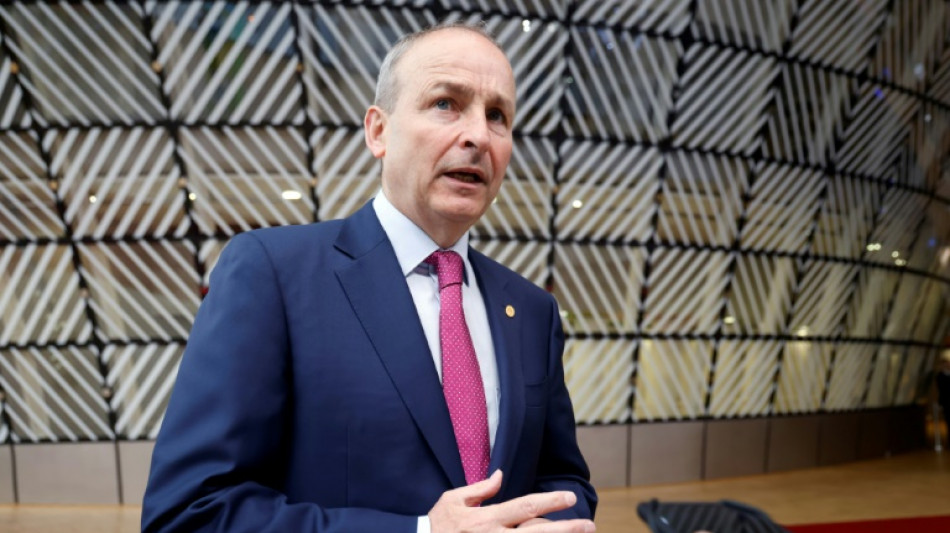
-
 Italian influencer Ferragni acquitted in Christmas cake fraud trial
Italian influencer Ferragni acquitted in Christmas cake fraud trial
-
UK interior minister says 'lost confidence' in police chief over Maccabi fan ban
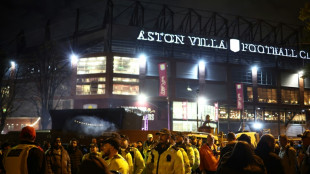
-
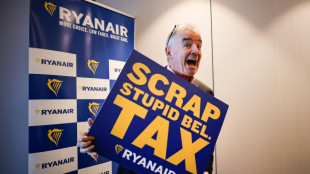 Ryanair hits out at 'stupid' Belgium over aviation taxes
Ryanair hits out at 'stupid' Belgium over aviation taxes
-
Burkina Faso sack coach Traore after AFCON exit
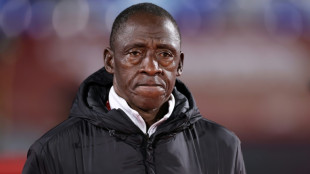
-
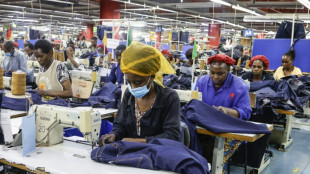 African manufacturers welcome US trade deal, call to finalise it
African manufacturers welcome US trade deal, call to finalise it
-
What happens when fire ignites in space? 'A ball of flame'

-
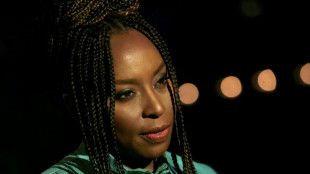 Death of author's baby son puts Nigerian healthcare in spotlight
Death of author's baby son puts Nigerian healthcare in spotlight
-
France bans 10 British anti-migrant activists
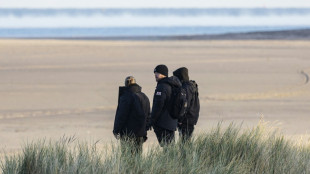
-
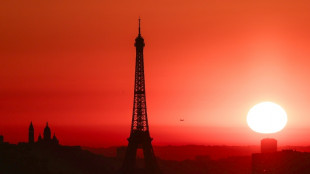 2025 was third hottest year on record: climate monitors
2025 was third hottest year on record: climate monitors
-
Hydrogen planes 'more for the 22nd century': France's Safran

-
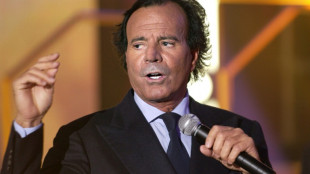 Julio Iglesias, the Spanish crooner who won global audience
Julio Iglesias, the Spanish crooner who won global audience
-
'We can't make ends meet': civil servants protest in Ankara
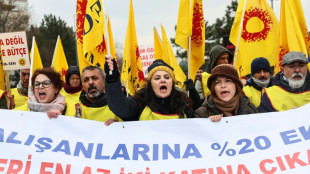
-
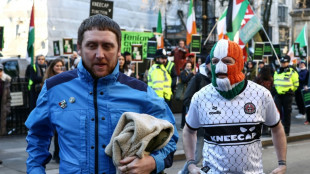 UK prosecutors appeal Kneecap rapper terror charge dismissal
UK prosecutors appeal Kneecap rapper terror charge dismissal
-
UK police chief blames AI for error in evidence over Maccabi fan ban
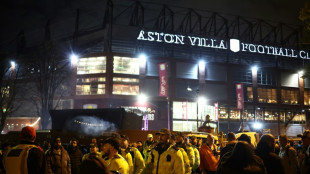
-
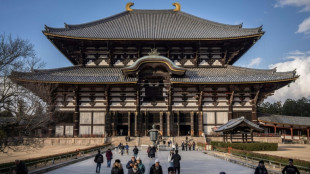 Oil prices extend gains on Iran unrest
Oil prices extend gains on Iran unrest
-
France bans 10 UK far-right activists over anti-migrant actions
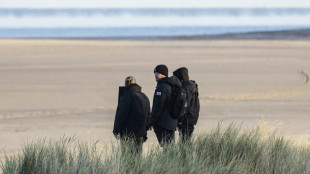
-
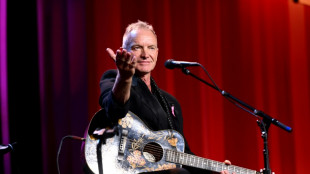 Every cent you take: Sting, ex-Police band mates in royalty battle
Every cent you take: Sting, ex-Police band mates in royalty battle
-
Thailand crane collapses onto train, killing 32
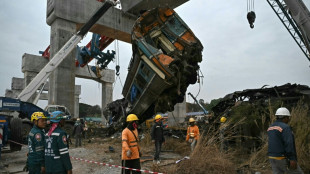
-
 Amateur stuns star-studded field to win 'One Point Slam' in Melbourne
Amateur stuns star-studded field to win 'One Point Slam' in Melbourne
-
Italian influencer Ferragni awaits verdict in Christmas cake fraud trial

-
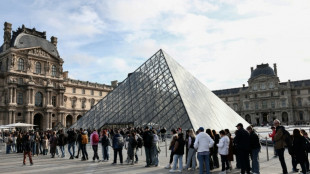 Louvre and other French museums fare hikes for non-European visitors
Louvre and other French museums fare hikes for non-European visitors
-
Japan's Takaichi to dissolve parliament for snap election
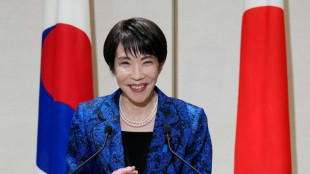
-
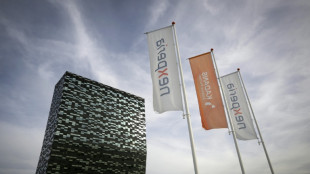 Dutch court hears battle over Nexperia
Dutch court hears battle over Nexperia
-
World-first ice archive to guard secrets of melting glaciers

-
 Ted Huffman, the New Yorker aiming to update top French opera festival
Ted Huffman, the New Yorker aiming to update top French opera festival
-
Ofner celebrates early then loses in Australian Open qualifying

-
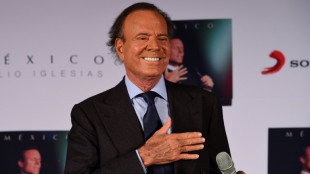 Singer Julio Iglesias accused of 'human trafficking' by former staff
Singer Julio Iglesias accused of 'human trafficking' by former staff
-
Luxury retailer Saks Global files for bankruptcy
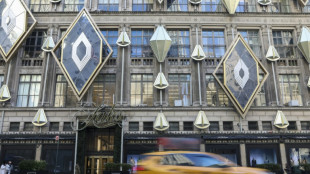
-
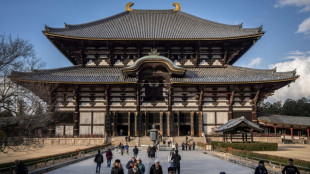 Asian markets mostly up with politics bump for Tokyo
Asian markets mostly up with politics bump for Tokyo
-
Iran vows fast trials over protests after Trump threat
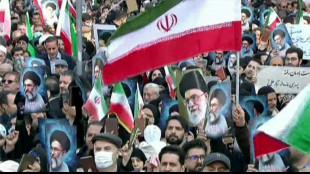
-
 China's trade surplus hit record $1.2 trillion in 2025
China's trade surplus hit record $1.2 trillion in 2025
-
Trail goes cold in UK abandoned babies mystery
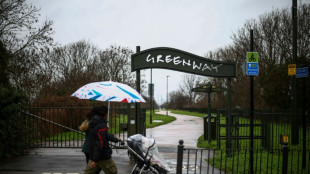
-
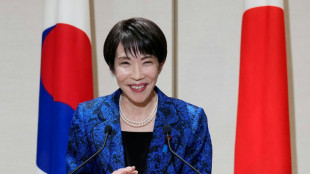 Japan's Takaichi set to call February snap election: media
Japan's Takaichi set to call February snap election: media
-
Scientist wins 'Environment Nobel' for shedding light on hidden fungal networks

-
 From bricklayer to record-breaker: Brentford's Thiago eyes World Cup berth
From bricklayer to record-breaker: Brentford's Thiago eyes World Cup berth
-
Keys overcomes serve demons to win latest Australian Open warm-up

-
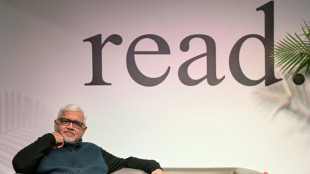 As world burns, India's Amitav Ghosh writes for the future
As world burns, India's Amitav Ghosh writes for the future
-
Actor Kiefer Sutherland arrested for assaulting ride-share driver
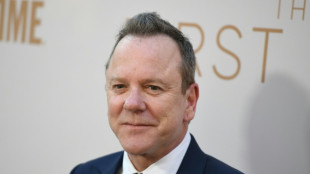
-
 Gilgeous-Alexander shines as Thunder halt Spurs losing streak
Gilgeous-Alexander shines as Thunder halt Spurs losing streak
-
West Bank Bedouin community driven out by Israeli settler violence
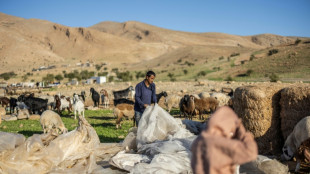
-
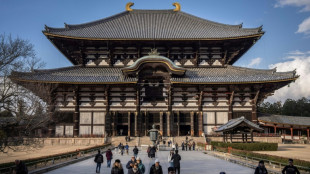 Asian markets mixed, Tokyo up on election speculation
Asian markets mixed, Tokyo up on election speculation
-
US official says Venezuela freeing Americans in 'important step'
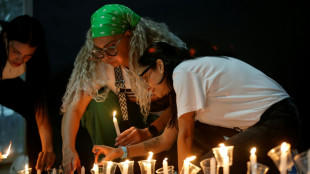
-
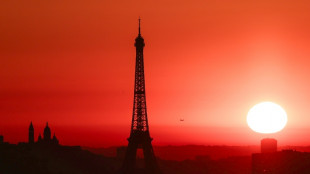 2025 was third hottest year on record: EU, US experts
2025 was third hottest year on record: EU, US experts
-
Japan, South Korea leaders drum up viral moment with K-pop jam

-
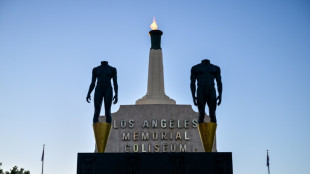 LA28 organizers promise 'affordable' Olympics tickets
LA28 organizers promise 'affordable' Olympics tickets
-
K-pop heartthrobs BTS to kick off world tour in April

-
 Danish foreign minister heads to White House for high-stakes Greenland talks
Danish foreign minister heads to White House for high-stakes Greenland talks
-
US allows Nvidia to send advanced AI chips to China with restrictions

-
 Sinner in way as Alcaraz targets career Grand Slam in Australia
Sinner in way as Alcaraz targets career Grand Slam in Australia
-
Rahm, Dechambeau, Smith snub PGA Tour offer to stay with LIV

| SCS | 0.12% | 16.14 | $ | |
| CMSC | 0.05% | 23.401 | $ | |
| BP | 0.74% | 35.625 | $ | |
| BCC | -0.08% | 83.805 | $ | |
| AZN | 1.18% | 95.64 | $ | |
| RIO | 2.19% | 85.46 | $ | |
| NGG | -0.05% | 78.04 | $ | |
| GSK | 0.67% | 50.235 | $ | |
| BCE | 1.8% | 24.156 | $ | |
| BTI | 0.54% | 56.925 | $ | |
| RYCEF | 0.06% | 17.29 | $ | |
| VOD | 1.27% | 13.35 | $ | |
| JRI | -0.25% | 13.785 | $ | |
| CMSD | -0.19% | 23.855 | $ | |
| RBGPF | 0% | 81.57 | $ | |
| RELX | -0.8% | 41.855 | $ |

Ireland marks 100 years since founding of Irish Free State
One hundred years ago on Tuesday, Ireland gained statehood in the midst of a bitter civil war.
But it was not as a republic, as revolutionary leaders had hoped. Instead, a new era began under the ambiguous label of the Irish Free State.
On December 6, 1922, Irish lawmakers gathered to take an oath of allegiance to King George V as a dominion of the British Empire.
It was one in a string of compromises made in the Anglo-Irish Treaty of 1921 that concluded Ireland's three-year war of independence.
Not least among the accommodations made to the imperial power was provision for the continued partition of six, majority Protestant counties in the UK-ruled jurisdiction of Northern Ireland.
Debates in the Irish parliament that day -- among those lawmakers who had not boycotted it entirely -- stressed allegiance to the king was given under duress.
A day after the free state was born, lawmaker Sean Hales was assassinated by gunmen opposed to the treaty as he left lunch at a central Dublin hotel.
In swift and brutal reprisal, the new Irish government executed four anti-treaty prisoners by firing squad without charge or justification.
Irish writer James Joyce captured the mood of many in the nation when he wrote in his novel "Ulysses", published in the same year, that history was "a nightmare from which I am trying to awake".
-'Decade of centenaries'-
The island of Ireland has been reckoning with its turbulent early 20th century history over the last decade -- beginning in 2012 with the commemoration of the opposing reactions in Belfast and Dublin to the prospect of limited devolved governance known as "Home Rule" in 1912.
The "Decade of Centenaries" saw events in Dublin in 2016 for the 1916 Easter Rising -- an armed insurrection by Irish republicans against British rule.
It was marked as a moment of intense national pride in the now republic.
But as the decade has gone on, old divisions about the creation of modern Ireland have resurfaced and which have marked its history ever since.
Last year, Irish President Michael D. Higgins was accused of snubbing an invitation to attend a church service to mark the centenary of the creation of Northern Ireland.
And Irish Prime Minister Micheal Martin said last week that the compromised status gained by Ireland in 1922, and the loss of "a significant part of the population of the island" in Northern Ireland, remained "divisive".
"There was a sense of a lost idealism for the type of state which had been fought for," he told a government-backed conference at University College Dublin (UCD).
- Britain's shadow -
A recent Irish Times poll highlighted the continued schism. In the republic, 66 percent would vote for a united Ireland.
In Northern Ireland, however, 50 percent would vote against while 19 percent were undecided.
The UCD conference laid bare the warts and all legacy of the free state, which lasted 15 years until the passing of a new constitution.
Panels referenced the independent state's entrenchment of Catholic and patriarchal values that eroded women's rights.
Its failure to grapple with forces that would perpetuate mass emigration from Ireland during the 20th century was also highlighted.
"The parents of Ireland (were) wondering, are their children going to have a future in Ireland," said Irish historian Diarmaid Ferriter.
"We do need to think about those who felt they had no stake in the country."
On the plus side, the conference also discussed the 1922 constitution's delivery of an enduring democracy in Ireland and early successes to give the state a voice on the world stage.
Ireland's decision to join the European Union 50 years ago -- perhaps more than any other development in the last century -- allowed Ireland to finally step out of Britain's shadow, said Brigid Laffan, an Irish political scientist at the European University Institute.
If that ended the UK and Ireland's "asymmetric relationship", Brexit also further upended the status quo of the last century, she added.
"What Brexit has done to all of this as it has disturbed territorial politics in the UK and between the two parts of the island," Laffan said.
"The future is much more open because of Brexit than it would have been without."
I.Saadi--SF-PST


